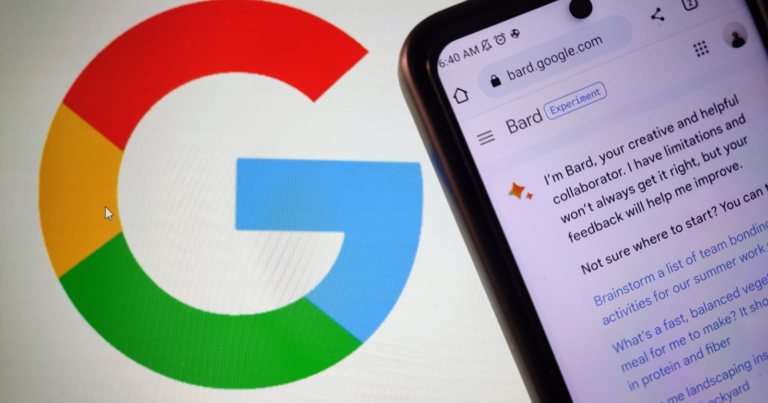
Google’s plan to launch its synthetic intelligence chatbot, Bard, in Europe has met a regulatory stumbling block.
In line with the Irish Information Safety Commission, Google has failed to supply adequate element on Bard’s privateness coverage, which has led to its EU debut being postponed.
Bard’s launch was halted by privateness issues
The Commission said that the data supplied by Google on defending the privateness of EU residents by means of its new generative AI software was inadequate.
That deficit has delayed Bard’s EU launch scheduled for this week.
The Irish regulator requires an in-depth overview of Bard’s compliance with EU information safety guidelines.
Google might be topic to ongoing opinions of privateness practices, which might be shared with different European information safety authorities.
The EU regulatory framework for AI programs
The EU proactively regulates AI programs, emphasizing safety, transparency and non-discrimination.
The primary AI regulatory framework proposed by the EU, often known as the AI Act, is on monitor to turn out to be the world’s main complete regulation on AI.
This proposed regulation categorizes AI programs in response to their danger to customers and assigns corresponding ranges of regulation.
The AI Act requires AI programs like Google’s Bard and different generative AI fashions to satisfy transparency necessities.
This consists of disclosing AI-generated content material, guaranteeing the mannequin doesn’t generate unlawful content material, and publishing summaries of copyrighted information for coaching functions.
The influence of AI regulation on AI deployments
The AI regulation handed by Members of the European Parliament (MEPs) on June 14 is anticipated to have an effect on the usage of AI programs within the EU.
Negotiations on the ultimate type of the regulation will now start with EU nations within the Council and intention to achieve an settlement by the tip of the 12 months.
The strict necessities of the regulation will form the way forward for AI expertise within the EU.
As Google’s Bard has proven, tech corporations trying to roll out AI instruments globally have to hold a detailed eye on these evolving laws.
Google’s dedication to accountable use of AI
Regardless of the setback, Google stays dedicated to increasing Bard’s availability.
A Google spokesman defined:
“We stated in Could that we need to make Bard extra extensively obtainable, together with within the European Union, and that we’d achieve this responsibly after consulting with specialists, regulators and policymakers.”
Google’s Bard, a competitor to OpenAI’s ChatGPT and Microsoft’s Bing Chat, has rolled out in 180 nations since March, together with the US and UK
Google’s launch in EU nations is but to come back, nonetheless, as strict privateness laws have already scrutinized generative AI instruments like ChatGPT for alleged information abuse and the shortage of a law-compliant algorithm.
In complete
Suspending the launch of Google’s bard within the EU is not only a setback for Google. It is a message to all expertise corporations to take privateness significantly.
The introduction of the AI Act will additional tighten the laws for AI programs and oblige corporations to exhibit their dedication to transparency and information safety.
Sources: Politico, European Parliament
Featured picture: Iljanaresvara Studio/Shutterstock